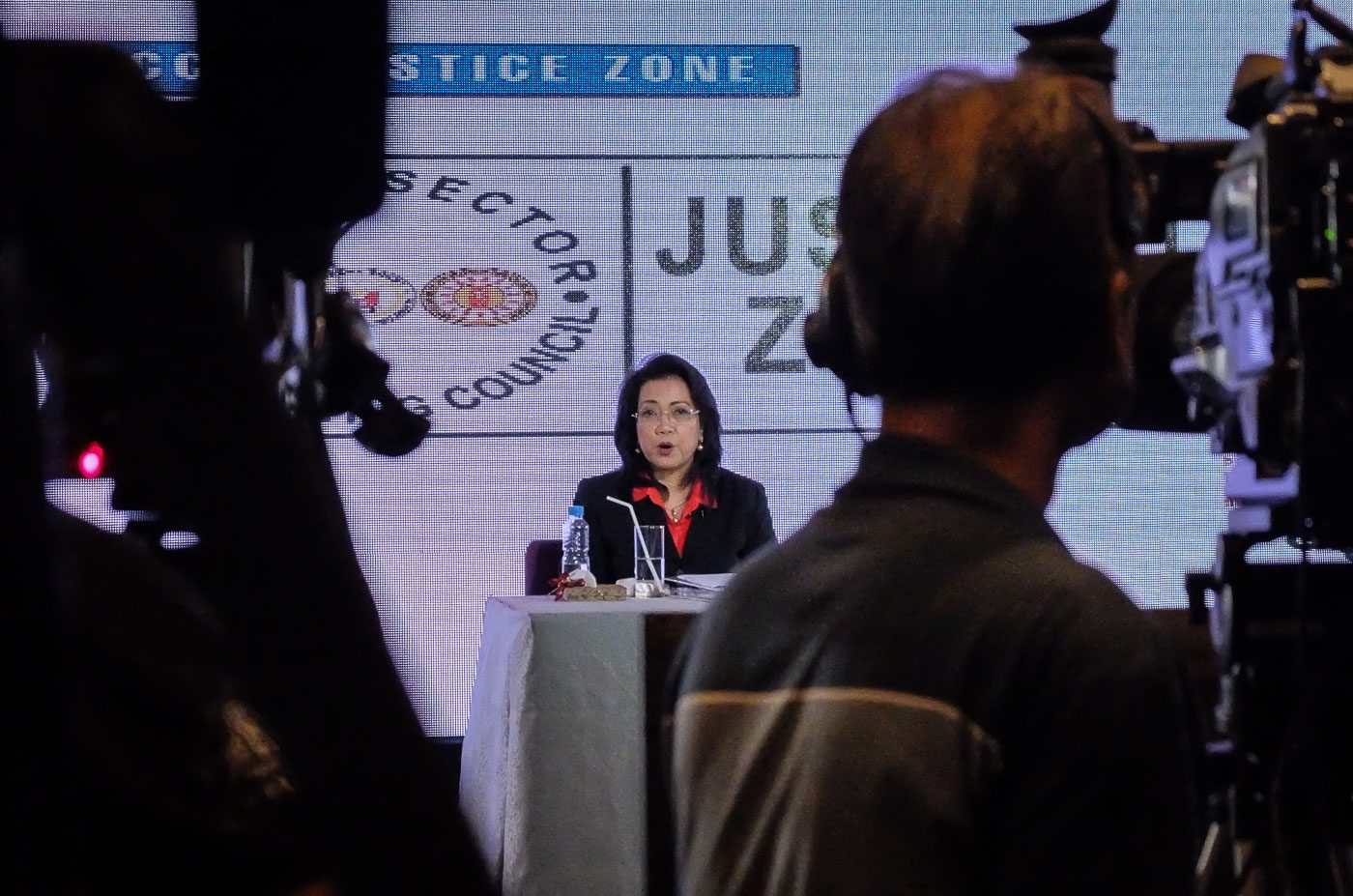SUMMARY
This is AI generated summarization, which may have errors. For context, always refer to the full article.

MANILA, Philippines (UPDATED) – Supreme Court Chief Justice Maria Lourdes Sereno announced on Thursday, August 25, that “eCourts” will be fully operational by the end of the year in 287 trial courts.
These courts are handling about 30% of the total caseload in the lower courts.
As part of efforts to decongest the courts, she said 569 “case decongestion officers” have been deployed this year in Regions 1-4, 7, and NCJR. 66 more decongestion officers will be deployed, given available funds.
“Unless we get rid of the case backlogs, we will not be able to meet deadlines on time,” Sereno said.
The High Court launched the electronic courts or eCourts in 2013 to allow judges and court employees to monitor case incidents in real-time. The case management system also allows the public to view the status of cases in kiosks found at the entrance of halls of justice, Sereno said.
In about 3 years or end of 2019, she said eCourts should be operational in 619 courts that account for 46.5% of all cases nationwide.
Drug cases
In her annual meet the press Thursday, Sereno said that to date, 469 drug cases are pending appeal in the Supreme Court, representing 33% of the total appealed criminal cases.
As of May 2016, there are 128,368 drugs cases pending in the lower courts, accounting for 29% of the total 439,606 pending cases in trial courts. In 2015, there were 55,481 new drugs cases filed, higher than the 37,736 cases filed in 2014 – representing a 47% increase.
About 240 more courts have been added to help with the drugs cases. This means that all 955 regional trial courts are now “drugs courts”.
She also said that the Supreme Court has shared its observations about the trial of drugs cases with the justice department, the National Prosecution Services, Public Attorney’s Office, the National Bureau of Investigation, the interior department, and the Philippine National Police.
Drug cases are “delayed or dismissed” for the following reasons:
- absence of police witnesses
- dearth of prosecutors or public attorneys
- weak evidence of the prosecution in relation to the rules on chain of custody and inventory of seized drugs and paraphernalia
Sereno has repeatedly stressed the importance of using technology in managing cases under eCourts.
The eCourts are also seen to be less prone to corruption. – Rappler.com
Add a comment
How does this make you feel?
There are no comments yet. Add your comment to start the conversation.